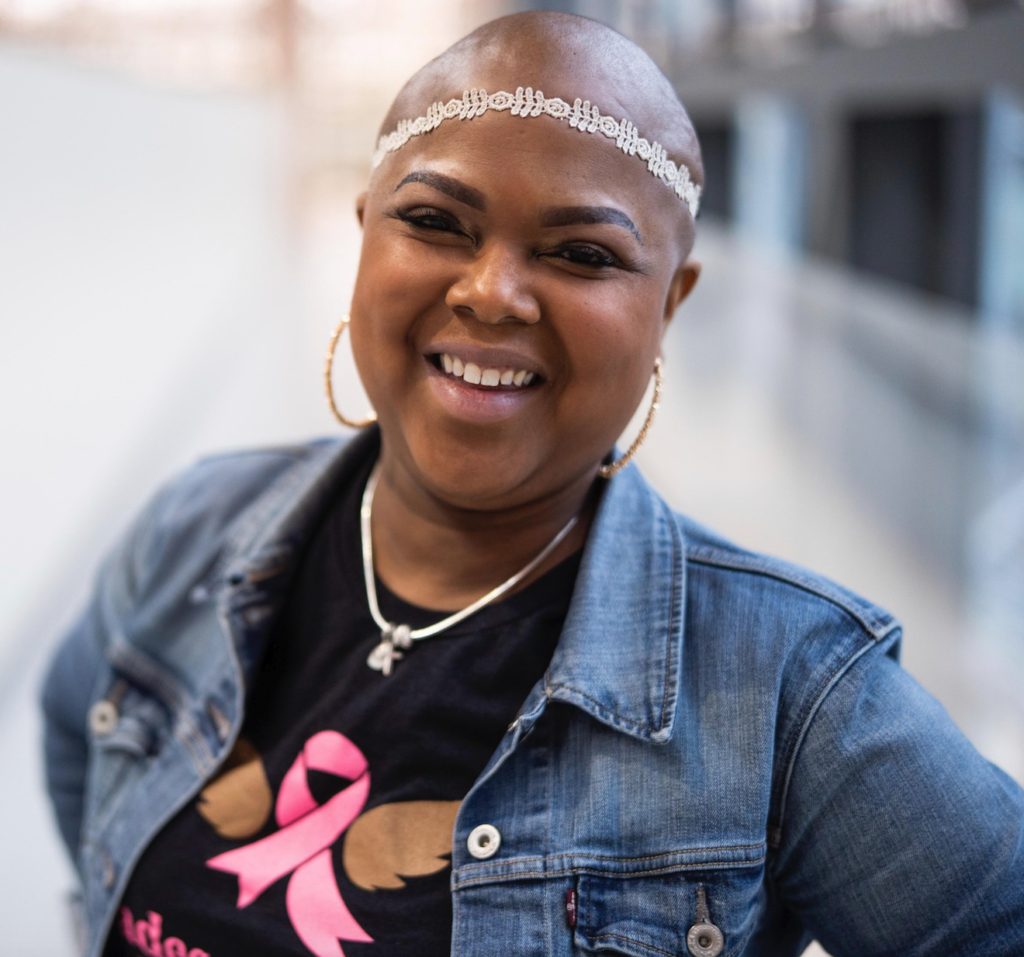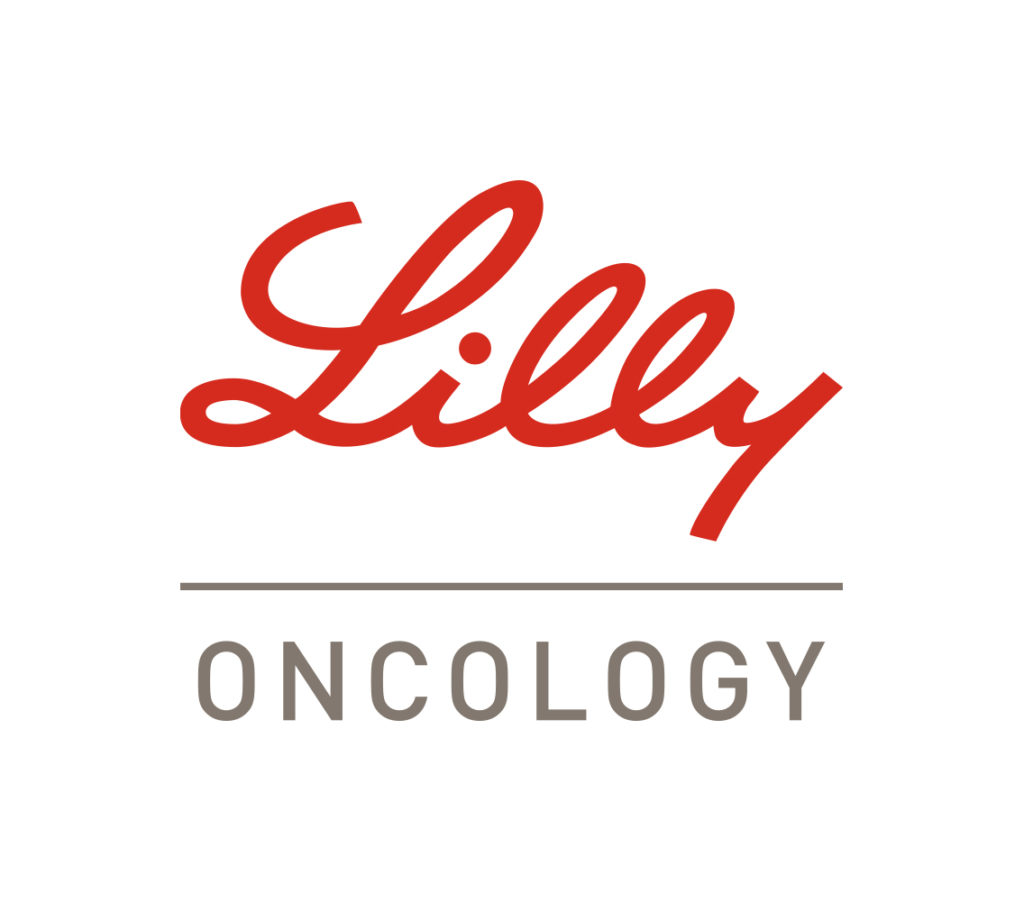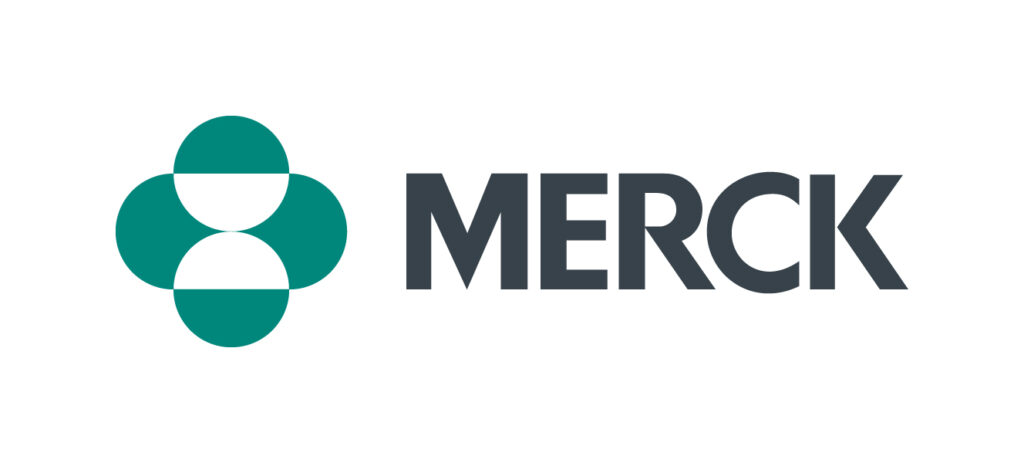This week on Real Pink we are hosting daily conversations about metastatic breast cancer (MBC) as part of National Breast Cancer Awareness Month. In the US alone, MBC is expected to kill 42,000 people. To turn MBC awareness into action, visit: https://mbc.komen.org/ and contact your local lawmakers by texting MBC to 40649.
Meet Sheila

Sheila McGlown was diagnosed with metastatic breast cancer de novo at the age of 43. She is a strong advocate for clinical trials and encourages other women, especially Black women, to join them if they can so doctors and researchers can keep developing more and better treatments.
Transcript
Adam (00:00):
Today, we’re going to continue the conversation about MBC and we are pleased to have Sheila McLaughlin on the show. Sheila has been living with metastatic breast cancer is an advocate for clinical trials. She’s going to share her personal experience participating in a clinical trial and why diversity is so important to the advancement of breast cancer treatments. Sheila, welcome to the show. Thank you for having me. Well, I’m excited to talk with you. I’ve talked to people about clinical trials before, but not quite from this perspective. So I think you’re going to add a lot to the shows. Tell us a little bit about yourself and about your journey with MBC.
Sheila (00:35):
Okay. My name is Sheila McLaughlin and I am 54 years. So I am a 25 year air force veteran and I have one daughter Genea Glover. She’s 31, she’s a social worker and I have one husband and I just got married about four years ago. Oh, congrats. I thank you. And I have three sisters and my mom died of metastatic breast cancer in 2004. And my dad is still here and he’s my inspiration for what I do.
Adam (01:11):
That’s great. And tell us a little bit about your, your journey with MBC so far.
Sheila (01:16):
Well, my mom passed away in 2004. She was diagnosed in 2001. I was active duty military. I was living over in Okinawa, Japan, and the same day she told me it was the same day, the towers fell.
Adam (01:31):
Wow.
Sheila (01:32):
And it was pretty crazy cause I was sitting there at work and I got the phone call. She said, well, I have breast cancer. And I was like, black women get breast cancer because I didn’t know you saw on TV. We’re just all white women. So I never, we never talked about breast cancer. I got my yearly checks and you know, that was it, but I couldn’t go home because all the planes, everything stopped and I’m sure, you know, what happened on nine 11 and I couldn’t fly over back to United States. So that was kind of a crazy moment. And then she passed away in 2004 and I received my diagnosis December 2nd of 2009 getting my yearly mammograms.
Sheila (02:16):
And at 37 when she died and I went to the doctor because I was sitting at my desk, like I said, I was active duty military and a sneeze. And I was like, that’s weird. It’s an environment. I think not another. So a week later I did it again and it burned again. So I went to my military doctor and I was just like, something don’t feel right. It’s my breast. And she said, well, are we going to order a mammogram? And breast cancer doesn’t hurt was not the breast cancer that hurt is because it metastasized. So they did a mammogram on December 2nd. She told me to sit on my chair and the military has never done that. So I was like, Oh, then I ordered a ultrasound. And I was like, Oh, and I ordered an MRI. And I was just like, okay, I’m done. So the radiologist pulled me in his office and he said, you see this white stuff in your breasts. He said, that’s breast cancer. And he said, what you were feeling was every time you sneeze, that cancer was pressing up against your ribs. So it has spread to my liver and ribs already. Wow. And I was 43 years old. So how does a 43 year old absorb all that information?
Adam (03:33):
Yeah, I can’t even imagine. And I understand that, you know, as a part of your treatment options, you decided to enroll in a clinical trial. So first walk us through just at a high level, what is a clinical trial and how did you decide to join one?
Sheila (03:47):
Well, a clinical trial and I’m not going to read this off of this because I don’t want to get nothing wrong, but clinical trials are resourced. Studies performed in people that are aimed at evaluating a medical intervention, which means for breast cancer, for men, a of breast cancer patients, it’s basically trying to find a new drug. That’s going to keep us alive longer or curious and know there are different phases of clinical trials. And what they’re trying to see through each phase is what’s the maximum tolerated dose that a patient can take without unnecessary side effects. And I joined my clinical trial in phase two in that was more of just to see the safety of the drug. What harm is it going to do to the patient? And that’s the part that I joined on.
Adam (04:33):
And what was your decision making process to do that? Because I know, you know, there’s, there’s obviously that kind of a more traditional route for a lot of these things, but you’re, you’re going the clinical trial route. Like
Sheila (04:43):
Why is that? Well, I just have been living with metastatic breast cancer for 10 years and because of research and because, you know, I tell people all the time, be your advocate. If something doesn’t feel right, if you need to ask doctor question, one thing, my doctor told me when I was first diagnosed 10 years ago, she said, if my bedside manner is ever bad to let me know we’ve established relationship. And July of 2018 was my fourth progression. It had progressed on my fourth rib. And she said, well, we can go back on other drugs you’ve been on or we can try this clinical trial. And she said, well, I have an 80 year old patient as the one I’m sure you could do good. And I was like, well, the 80 year old pushing into, so that’s the one. So, and she says, she’s doing fine.
Sheila (05:34):
And her side effects are minimum. And I was like, okay, cool. So, you know, in the blood culture, the first thing you think about is, well, am I going to be a Guinea pig because of Henrietta lacks? Yeah. Tuskegee airman, the syphilis project and you know, different things like that. But then the trust that I have on my, it just kind of wiped all that out. And I was just like an eight and a half years. I’m still here. You know, I know she wouldn’t lay me astray. So I said, you know, if I’m gonna walk the walk and talk the talk and be a clinical trial advocate for black women in the black community and underserved communities, or whoever are looking up to my story as hoping their story, when they’re diagnosed with metastatic breast cancer, you know, that’s what I wanted to do.
Adam (06:21):
That’s great. I’m so glad you’re doing that. I’m so glad you had that bold attitudes. Let’s talk a little bit more about clinical trials. Are there any misconceptions that you had about clinical
Sheila (06:30):
Trials going into it? Yeah, because you know, like I said, in the black community, for one, we don’t necessarily talk about being sick. Most women in the black community don’t even get offered or even have the conversation of clinical trials. And that’s what I do. And that’s why I’m so passionate about it is that should be the first thing when you’re saying your doctor. Okay. Well, make sure that if you have any clinical trial and you don’t have to be metastatic to join a clinical trial, it could be triple negative. You know, I was diagnosed her two positive ERPR positive, and I have many more choices because of the subtype of breast cancer I have and make that want to have a discussion if they don’t actually like dr. Such and such you know, make sure I’m on that list. If you see any clinical trials that come across or you can go to clinical trials.org and look up clinical trials, and I’ll tell you what, the standard of care that I get, I get my eyes checked.
Sheila (07:27):
Like every two months I get my heart checked every three weeks. I have six weeks scans cause they want to make sure they’re measuring, you know, different things. And and it’s not to say that FDA approved drugs don’t get top notch care, but it amaze me. Cause I’m just saying, follow me every day. Wow. That’s great. And yeah, there were a misconception and I’m not going to say that I wasn’t scared because I didn’t know. It’s like, you’re going into another part of your new, normal, like an unknown world that you’re hoping that it’s going to work. And so now they know at least what my genes as a black woman, you know, maybe this is the effect that it’s gonna have on other black women. Yeah.
Adam (08:09):
Yeah. And you mentioned earlier that it’s important that there’s diversity in clinical trials. Like, walk me through that a little bit more. Why is it important that clinical trials have diversity
Sheila (08:20):
Participants? Because our genes are different. They’re in, that’s just the way it is. And you know, when I was supposed to told about clinical trials, I’m glad that my doctor she’s kind of like head of clinical trial. So she’s always mentioned to him, mentioned them to me and we’ve always talked about them, but some I didn’t qualify for, and this trial that I’m on, there are women. I think when I was at the San Antonio breast cancer symposium that had treatments up to maybe like they wanted 20th line of treatment, some trials, you can’t join because they consider you over-treated. But I’m glad I did join giving them a different perspective. I think
Adam (08:59):
Good doctors do differently to include more African American women in
Sheila (09:04):
Their clinical trials X. And let us say no X asked me I heard about this clinical trial or do you know about this clinical trial or make that sheet a part of, you know, when you go onto the hospital, they’re going to give you this bag in the bag that I go to is a blue bag. So, you know, when you get that blue bag, you’re either new, you just diagnosed or cause you carrying it around the first couple of times it was, I know this is too much stuff to talk about. I mean, all in one, couple of weeks, right? But also understand when you’re asking 70% of black women are single parents, but these are things that you should know about your patient before the cultural differences. If she joins this clinical trial, was she had daycare, would she have transportation? Would she have access to care?
Sheila (09:56):
You know, someone stopped treatment because they can’t afford the copay. So it’s either head is copay or I’m going to put food on the table and have electricity. So there are a lot of things that they should consider first. And I’ve always said that black women should go in medical schools and let us tell our story and let us tell you how we want you to be treated because we’re hiring you, you know, to take care of us. You go. So now I walk into my office and I’m like, I’m the boss. So, you know, we, we talking, but you know, this is the information that you’ve given me. I’m hoping that, you know, you’re giving me information. That’s going to keep me alive. And one thing I always tell people is that when I told my doctor, I said, don’t treat me like I’m dying. I’m not dying. So you treat me like your early stagers. So don’t we come into here, I’ll sad, face it, whatever. Cause we not doing it. And she hasn’t, you know, she come in there and just smile and face it. And we talk about things and you know, you just have that. Great, great, great. It’s so important. And faith has a great part in everything I do. I ask that everything before I didn’t even interview, I say, God, is this something you want me to do? And he gave me, he say, yes,
Adam (11:16):
Thank you so much, Sheila, for joining me today. It’s really been a pleasure speaking with you.
Sheila (11:20):
Yeah, I feel like we’re friends.
Adam: (11:23):
Me too!
Sheila: (11:25):
Thank you. God bless you.
Support for MBC week is brought to you by our partners, Eli Lilly and Merck. Thank you for joining us on this special episode of Real Pink, focused on metastatic breast cancer. You can help the metastatic breast cancer community today by donating to breakthrough research by visiting mbc.komen.org. You can also contact your local lawmakers by texting MBC to 40649.
Sponsors

The More for MBC Facebook page is a Lilly-owned page that aims to provide people living with metastatic breast cancer a platform to engage.

Merck invents for life – our mission is to deliver innovations that extend and improve the lives of people with cancer.
About This Episode
Intro and outro music is Into Thy Heart – Instrumental Track by Ivan Chew.
